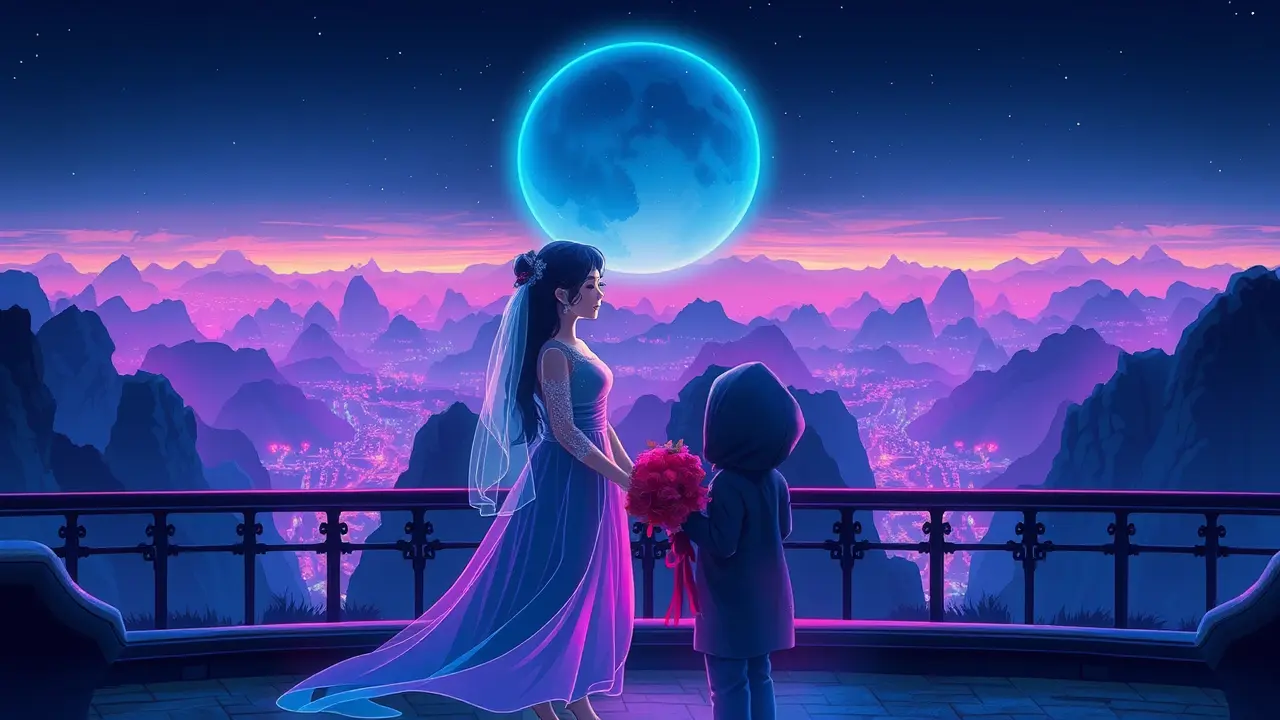Taiwan singer helps cancer patient with wedding ceremony.
In the quiet, profound moments that define our shared humanity, a story unfolded in Zhangjiajie that speaks less to the grand stages of celebrity and more to the intimate spaces where ordinary lives become extraordinary. Zou Dafu, a 26-year-old blogger whose online presence is a tapestry of 19,000 followers, found her life’s narrative violently rerouted just two months after the joyful commitment of an engagement, a diagnosis of terminal stomach cancer casting a long, unyielding shadow over the future she had meticulously planned with the man she met in the autumnal hope of October 2022.The cruel irony of timing—the swift pivot from planning a wedding to confronting mortality—is a psychological landscape familiar to too many, a jarring transition that sociologists often note fractures personal identity and forces a re-evaluation of what constitutes a ‘complete’ life. Into this chasm of postponed dreams and emotional agony stepped an unlikely figure: Kenji Wu, a Taiwanese singer whose intervention was described not as a cure, but as an ‘emotional painkiller,’ a phrase that resonates deeply with the work of palliative care experts who argue that healing, in its most holistic form, must address the soul’s anguish as fervently as the body’s decay.This was not a lavish, publicity-stunt ceremony; it was a belated wedding, a ritual of profound significance, orchestrated to grant a dying woman the symbolic closure and public affirmation of her love, a act that echoes the foundational theories of anthropologists like Victor Turner, who wrote extensively on rituals as mechanisms for societal and personal transformation during life’s liminal periods. The online praise that cascaded following Wu’s actions is itself a fascinating social phenomenon, a digital collective grasping for narratives of altruism in an algorithmically curated world often dominated by cynicism, a modern-day parable that fulfills a deep-seated human need to witness compassion in action, a theme I’ve encountered repeatedly in my interviews with individuals facing terminal illness, where the smallest gestures of recognition often hold more weight than the most advanced medical protocols.The couple’s move to Hunan province after university graduation, a journey for work that serendipitously became a journey toward love and now profound loss, adds another layer to this human-interest mosaic, reflecting the migratory patterns of China's younger generation seeking opportunity, only to have their personal stories intersect with the universal, unforgiving realities of health and fate. Wu’s role here transcends that of a mere performer; he became a facilitator of memory, a curator of a final, joyful chapter, his actions posing a silent, challenging question to our broader culture: in a society increasingly obsessed with individual achievement and digital metrics of success, what is the true currency of a meaningful life, and how do we, as a community, provide these most vital, non-pharmaceutical painkillers for the spirit? The story of Zou Dafu and Kenji Wu is ultimately a quiet manifesto on the power of presence, a reminder that the most impactful stories are not always those broadcast from the world's stages, but those whispered in hospital rooms and celebrated in hastily arranged ceremonies, where the raw materials are not fame or fortune, but the simple, courageous act of showing up for another human being in their most vulnerable hour.
JA
Jamie Carter123k2 days ago
wow this really hits different tbh, makes you think about what actually matters
0
JA
Jamie Lawson123k2 days ago
wow that's a heavy read tbh. idk what to say smh
0
JA
Jamie Larson123k2 days ago
wow that's genuinely beautiful, what a kind thing to do
0
